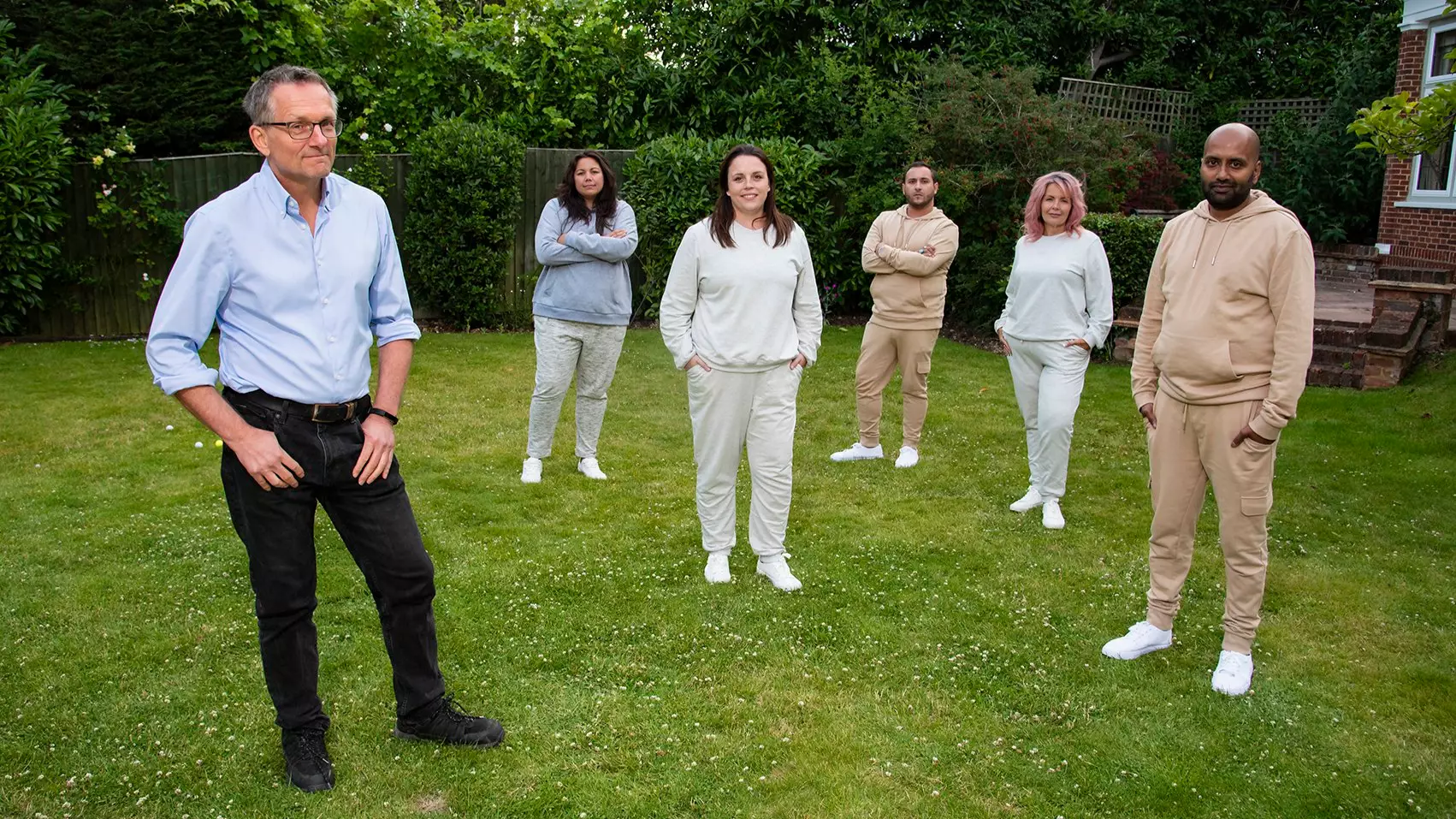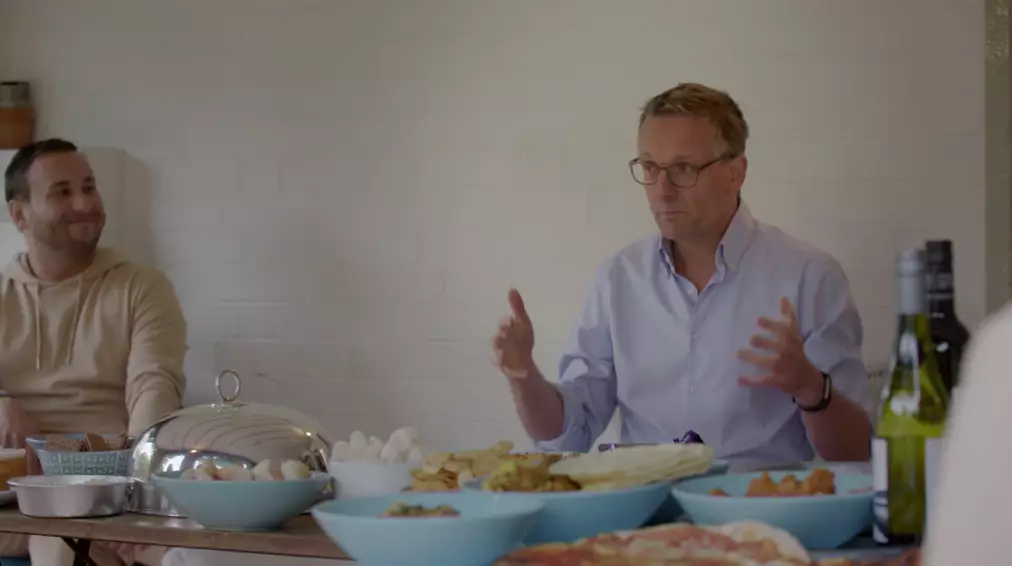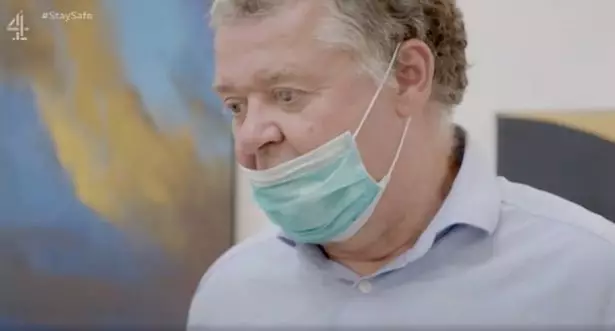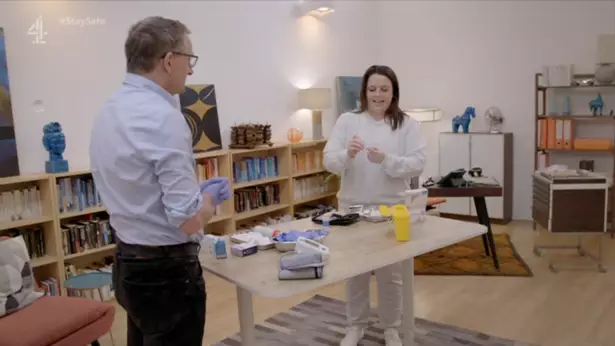
Channel 4 has come under fire for its problematic show How To Lose A Stone In 21 Days, which viewers have slammed as being 'irresponsible' and 'dangerous'.
The documentary follows Dr Michael Mosely as he changes the diets and lifestyles of a group of volunteers, with the goal of losing a stone in just three weeks.
Alongside his wife Dr Clare Bailey, Dr Michael monitors his volunteers' daily calorie counts and alters their exercise regimes.
Advert
The daily allowance of 800 calories is far below that recommended by the NHS, which advises that men should eat around 2,500 calories a day, while women should eat around 2,000.

Angry viewers took to Twitter to air their views on the show's premise, with many commenting that the show promoted "extreme crash dieting" and was "triggering" for those with disordered eating.
One wrote: "I did 'How to Lose a Stone in 21 Days' once. It was called "having an eating disorder". #howtoloseastonein21days #irresponsiblepricks."
Doctor of evolutionary biology and science YouTuber Dr Sally Le Page commented: "I'm no dietitian but having just watched "How To Lose a Stone in 21 Days", it seems remarkably irresponsible to be promoting an 800kcal/day diet to the general public. Call it ketosis if you want, but it's still extreme crash dieting or near starvation."
Another Twitter user agreed, writing: "Hey @Channel4 - I have a disordered relationship with food and #howtoloseastonein21days is like catnip for my mental health problems. Could you not offer people messed up dieting guides? Super thanks."
Advert
Others drew comparisons with The Restaurant That Burns Calories, which aired back in April as part of BBC Two's Horizon.
The food-based TV show, hosted by First Dates maître d' Fred Sirieix and Dr Zoe Williams, was slammed for its controversial premise.
Restaurant diners were shown tucking into meals before a secret gym team of fitness experts revealed how many calories they had consumed, and how much exercise was needed to burn them off.
Advert
But the programme drew criticism from enraged viewers who called the show format for being "irresponsible" and "out of touch".
Calling out both programmes, one Twitter commentator wrote: "First we had The Restaurant That Burns Calories, now we get How To Lose A Stone in 21 Days. Nice to see the TV channels are on board the diet culture train setting the nation up for a lifetime of disordered eating and bad body image. Good good."
Others were furious that an ENT specialist appearing on the show wasn't wearing his mask properly, positioning his PPE so that it covered his mouth but not his nose.
"An ENT specialist wearing his mask under his nose isn't even the most problematic or irresponsible thing about #howtoloseastonein21days," concluded one displeased viewer.

After the show aired, eating disorder charity Beat saw a 51% increase in calls.
Advert
In a statement posted to the charity's website, Beat's Director of Services, Caroline Price, said: "It is incredibly worrying to see a national programme yet again promoting extreme weight loss and crash dieting.
"The promise inherent in the title is likely to attract people suffering from or vulnerable to eating disorders and risks encouraging those affected to attempt the methods shown despite the damage this could cause.
She continued: "Research has shown that dietary restraint, including the restriction of calories, has been found to be a risk factor in the development of an eating disorder. The programme did not appear to look after the participants' mental health in any way, such as consultations with a psychiatrist."

To read the statement in full, click here.
Advert
In response to the criticism, Channel 4 told Tyla: "The series examines the evidenced link between Covid-19 and the very real threat it poses to those who have a BMI in the obese or overweight categories, as highlighted by a recent study led by Liverpool University and involving Imperial College London that found obese people are around 37 per cent more likely to die if they catch Covid-19.
"All episodes clearly state that a short-term 800-1000 calorie diet is only suitable for people whose BMI puts them in the overweight or obese categories and that it should be done with proper medical supervision.
"The health and welfare of each contributor is of paramount importance to both Channel 4 and the production company and strict guidelines were followed before, during and after filming. A number of health checks were undertaken on contributors before they embarked on the regime and support is ongoing.
"The continuity announcer directed viewers to programme support information after the broadcast which is available here."
Featured Image Credit: Channel 4Topics: TV and Film, TV News, TV Entertainment, Health, Channel 4